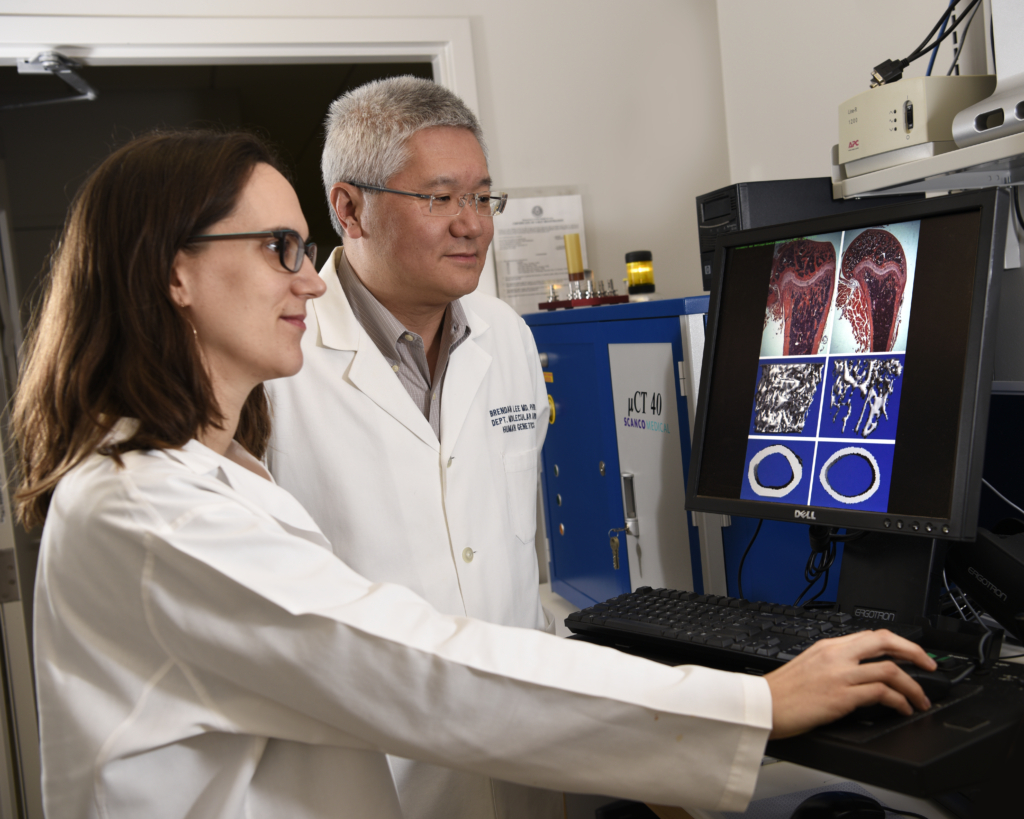
Herndon Family Champions Baylor’s Research Into a Rare Hereditary Connective Tissue Disorder
All too often, rare but debilitating conditions get overlooked for funding, which can discourage researchers from pursuing treatments.
This is the last thing Elizabeth and Rogers Herndon wanted to happen with research into classical Ehlers-Danlos Syndrome (cEDS), a rare connective tissue disorder affecting collagen production and resulting in overly flexible joints, fragile skin and, in severe cases, ruptured blood vessels or organ walls.
Having a family member diagnosed with cEDS, the Herndons know firsthand the importance of the groundbreaking research occurring at the Pamela and David Ott Center of Excellence in Heritable Disorders of Connective Tissue and Ehlers-Danlos Syndrome at Baylor College of Medicine. The Herndons donated $100,000 to help Brendan Lee, M.D., Ph.D., chair of and professor in the Department of Molecular and Human Genetics, and the Robert and Janice McNair Endowed Chair and Professor in Molecular and Human Genetics, advance his work examining the molecular events underlying wound healing, which is key to developing a possible treatment for this condition.
With the Herndons’ generosity, Dr. Lee and his team are working toward understanding how cEDS affects bone quality and mass by testing new approaches to boosting collagen expression – advancements that will hopefully bring the team closer to developing treatments for the 1 in 5,000 people impacted by the various types of EDS, including cEDS.
“By partnering with Baylor, we hope to accelerate treatments and meaningfully impact those living with Ehlers-Danlos Syndrome,” Mrs. Herndon said.




